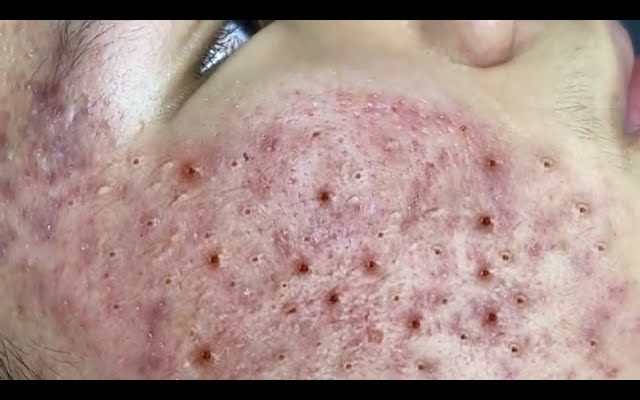Acne is a prevalent skin condition affecting millions worldwide. It occurs when hair follicles become clogged with oil and dead skin cells, leading to whiteheads, blackheads, pimples, and more severe forms like cysts and nodules. Commonly appearing on the face, forehead, chest, upper back, and shoulders, acne can cause significant emotional and psychological distress, making effective management essential.
Causes of Acne
Several factors contribute to the development of acne:
- Excess Oil Production: Overactive sebaceous glands produce too much oil, which can block pores.
- Clogged Hair Follicles: The combination of oil and dead skin cells can clog hair follicles, leading to acne.
- Bacteria: Propionibacterium acnes (P. acnes) bacteria can infect clogged pores, causing inflammation.
- Hormones: Hormonal fluctuations, especially during puberty, menstruation, and pregnancy, can increase oil production and trigger acne.
- Diet: Foods like dairy products and high-glycemic-index foods may exacerbate acne.
- Stress: Stress can lead to hormonal changes that increase oil production, worsening acne.
Cleaning and Treating Acne
Managing acne involves a combination of proper skincare and lifestyle adjustments:
- Gentle Cleansing: Wash your face twice daily with a mild cleanser to remove dirt, oil, and makeup. Avoid harsh scrubbing as it can irritate the skin and aggravate acne.
- Exfoliation: Use a gentle exfoliant to remove dead skin cells that can clog pores. Products containing salicylic acid or glycolic acid are effective choices.
- Topical Treatments: Over-the-counter treatments with benzoyl peroxide, salicylic acid, or alpha hydroxy acids can reduce acne. Prescription options include topical antibiotics, retinoids, or azelaic acid.
- Moisturizing: Use a non-comedogenic moisturizer to keep your skin hydrated without clogging pores.
- Avoid Touching Your Face: Touching your face can transfer oils and bacteria from your hands, worsening acne.
- Healthy Diet: Maintain a balanced diet with plenty of fruits, vegetables, whole grains, and lean proteins. Limit high-glycemic foods and dairy if they trigger your acne.
- Hydration: Drink plenty of water to keep your skin hydrated and support overall health.
- Medical Treatments: For severe acne, dermatologists may prescribe oral antibiotics, birth control pills (for hormonal acne), or isotretinoin (Accutane).
Lifestyle Tips
- Change Pillowcases Regularly: Clean pillowcases prevent oil and bacteria buildup.
- Avoid Heavy Makeup: Use non-comedogenic makeup and ensure thorough removal before bed.
- Reduce Stress: Engage in stress-reducing activities like exercise, meditation, or hobbies.
- Protect from Sun: Use a non-comedogenic sunscreen to protect your skin from harmful UV rays, which can worsen acne and cause scars.
Acne management requires patience and consistency. If over-the-counter treatments fail, consulting a dermatologist for personalized advice and stronger treatments is essential. With proper care, it’s possible to achieve clearer, healthier skin.



